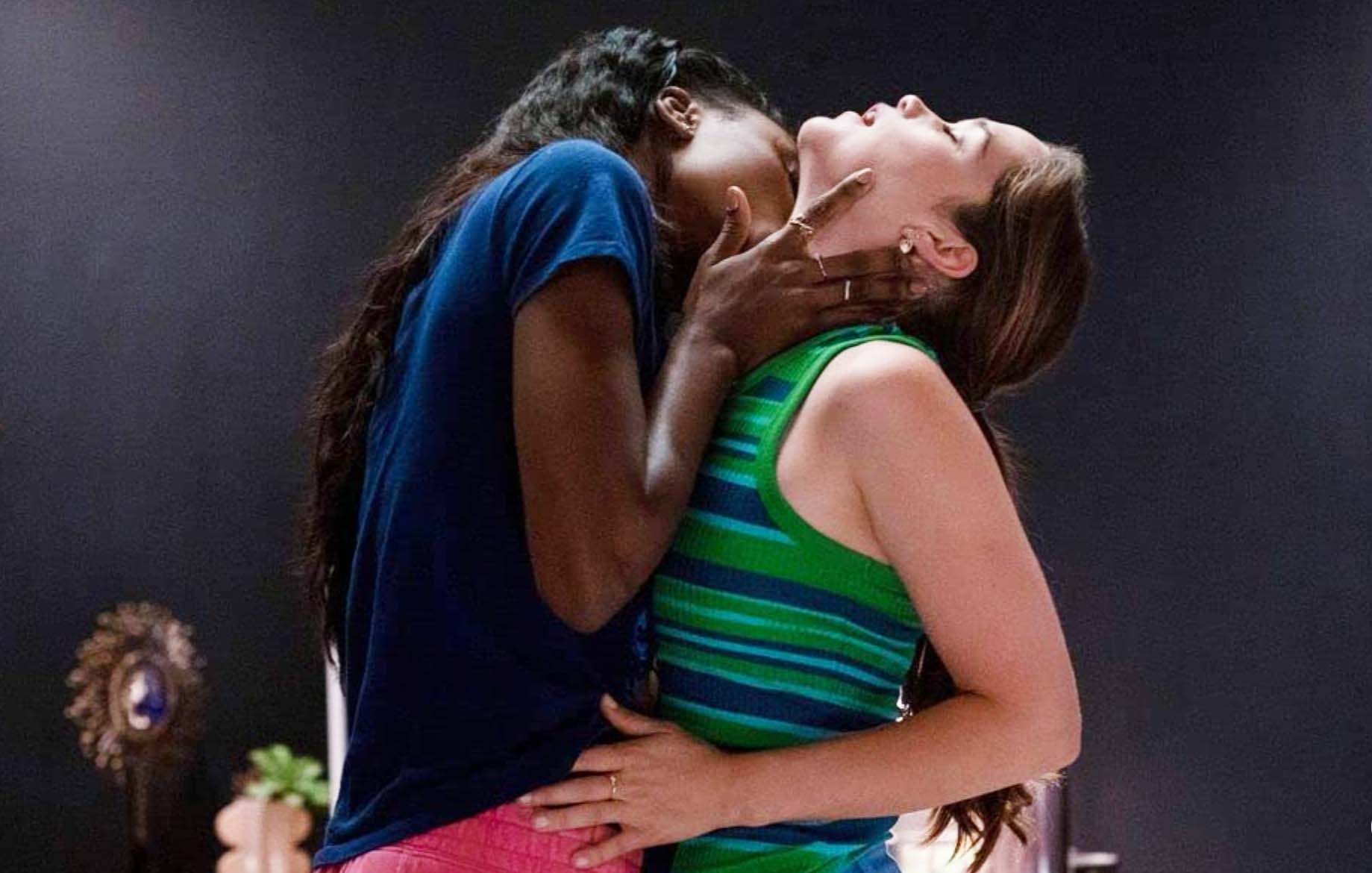Sixteen-year-old Juliette Fairmont, one of the pair of star-crossed lovers at the centre of Netflix’s First Kill, is not quite ready to grow up. But growing up is a little harder to fight when you’re descended from an endlessly long line of ruthless vampires. That’s the central conflict of the new eight-episode Netflix series based on the short story of the same name by Victoria Schwab. The show is pure camp with all of the best cheesy tropes: subtle glances when a crush is near, secrets hidden as a locker door shuts, steamy makeout sessions in a cramped closet. It’s a show that reminds viewers that falling in love is less of a delicate stumble and more of a face-first splat onto concrete.
First Kill brings in familiar plot points from stories like Romeo and Juliet, Twilight and Buffy the Vampire Slayer, but with a queer twist. There are the classic star-crossed lovers, the reluctant hero, the secret prophecy and, of course, the parents who would rearrange the cosmos if they could just to keep our dearly beloveds apart. It’s corny, but that’s what makes it such a perfect teen drama.
Juliette (Sarah Catherine Hook) and Calliope Burns (Imani Lewis) are, unfortunately, in love. The former is a vampire and an unwilling killer, and the latter is a human is fulfilling her destiny of hunting down anything that goes bump in the night. While that plotline will be familiar to fans of Buffy, I’m happy to spoil that the lesbians actually survive in First Kill. And unlike many queer-centred movies and shows, this is not a coming-out story. Also, Juliette and Calliope thankfully don’t have homophobia to add to the seemingly endless forces trying to pull them apart.
First Kill fluctuates between the perspectives of Juliette and Calliope, whose voices often narrate their respective scenes. Though it seems that Calliope and Juliette’s families have nothing in common, they are pulled together by the fact that their families are both obsessed with making sure their daughters have a perfect first kill. In Juliette’s family, a vampire’s first kill is basically a sign that now you’re an adult. Calliope’s family is equally as obsessed with destiny. As Guild Guardians—a lineage devoted to slaying vampires and monsters—their honour code is strict: vampires are for killing, not kissing. Getting her first kill means Calliope will finally be able to join her family on hunts and gain recognition from the other guild members.
Both teens find themselves at a horrible impasse, with each family convinced that their respective daughter must be tasked with killing the other. Inevitably this leads to a delicious scene where Juliette sinks her fangs into Calliope’s neck, and Calliope can’t help but reach for the stake in her own back pocket. This conflict drives the first major plot of the show: when each girl’s attempt to kill each other fails, the plot thickens and the viewer is sucked into the complicated side plots of family members. Juliette’s estranged brother, Oliver (Dylan McNamara) suddenly shows up after being banished for years from the family. Juliette agrees to help him seek revenge against their parents, as long as he finds a way to turn her human. Calliope’s family, meanwhile, notices a sudden rise in monsters all over town, and other hunters don’t think it’s a coincidence.
In just eight episodes, First Kill combines the complexities of teen life with queer love. Calliope’s inner monologue in Episode 5 describes her feelings for Juliette as “hysteria, devastation, crazy uninhibited highs, the crashing lows of withdrawal.… So why would I be immune to the insanity of first love?” This reminded me of my own overdramatic teenage diary. Juliette and Calliope go through the same emotional troubles that come with being a high school student. Both girls struggle with feeling like they don’t belong: for Calliope, it’s because her family moves a lot, so she always feels like the new kid. For Juliette, it’s not because she’s a vampire, but rather because she gets super anxious, whether it’s interacting with girls or talking to the school principal.
But, despite this social awkwardness, she grins from ear to ear when a game of Seven Minutes in Heaven puts her and Calliope in a closet together. Hook’s portrayal of Juliette in this scene is giggly as she tells Calliope that she’s wanted to do this for a long time, and can she kiss her again, actually? The chemistry between the two characters feels real. In an interview with Entertainment Weekly, Hook described basically melting in a puddle when she and Lewis were auditioning together. The show is filled with tender moments like this that are familiar for many of us who struggled to come to terms with our first real queer relationships. Falling in love with someone that we know our family will struggle to accept is relatable, and it’s refreshing that in this case it’s not because they’re queer.
First Kill isn’t the first show or movie aimed at teens to feature queer protagonists. Recently, Love, Victor and Heartstopper were adored by queer and straight audiences alike. For those of us who had an unpleasant coming out, there’s an appealing comfort to these love stories we can live vicariously through. While these tales can be cute, it can also get tiring to only ever see the plot of coming out, since being queer is so much more than just telling your family who you’re crushing on.
In recent years, family-friendly queer media has been generally about men: stories like Love, Simon and Heartstopper are all great examples of representation that audiences of all ages can enjoy. But there seems to be a gap for PG-rated queer media that focuses on women. Other popular lesbian stories like The L Word: Generation Q aren’t really intended for a young teen audience in the same way that Heartstopper is. But First Kill is strictly PG-13: teenagers make out, but that’s it. No one drops a single F-bomb.
Above all, what makes First Kill so compelling is that the two girls are unapologetically
queer and unapologetically themselves. The supernatural teen drama genre has diversified a lot when it comes to queer representation, with shows like Orphan Black and Wynonna Earp. First Kill is ideal for fans of Teen Wolf, Vampire Diaries and The Chilling Adventures of Sabrina. The same cheesiness that we love in teen dramas are in this show, but with a lesbian twist that will satisfy both older fans craving camp, and young fans look for representation. For those of us already past our teen years, these tropes remind us what it was like to be an awkward kid wanting to be part of a magical world.
The dialogue in First Kill sometimes feels corny, but it’s also a realistic portrayal of how 16-year-olds talk. When you’re a teenager, disappointing your parents feels like the end of the world. Having your first relationship might as well be walking on clouds. One scene shows the girls building sets with their classmates for the school play, and naturally, it’s Romeo and Juliet. Any bad day when you’re 16 feels like your life is over, but with monsters and hunters mixed in, suddenly the emotion has a lot more depth. With First Kill, viewers get a cute, queer love story while also enjoying the fantasy genre that sucks in so many teens and adults alike.


 Why you can trust Xtra
Why you can trust Xtra


